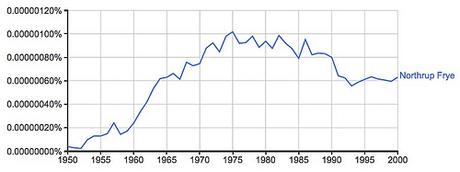
He published The Anatomy of Criticism in 1957 and that, I believe, is the book that put him on the map. He tops out in 1975, a year before MLN published its special Centennial Issue: The Responsibilities of the Critic, where Frye had the lead-off essay. So MLN timed that just right.
Here we've got Frye, plus four other critics, Hillis Miller, George Steiner, Stanley Fish, and Harold Bloom. Note that the other four all outpace Frye by a considerable margin. Are we looking at the era of the star critic? And Harold Bloom outpaces the other three, presumably because he developed a general audience readership that none of the others did. Notice as well that the other three (Hillis Miller, George Steiner, Stanley Fish) peaked in the 1990s.
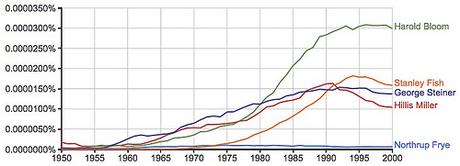
Now let's add Derrida to the group:
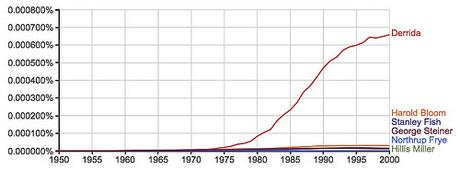
Not surprisingly he sends them all to the showers. Of course, he's not a literary critic. He's a philosopher with a strong interest in literature and, of course, who exerted a strong influence on literary criticism.
Notice, in passing, that Derrida also outpaces Noam Chomsky, sometimes touted as the best-known intellectual in the world (as much for his politics, if not more, as for his linguistics):
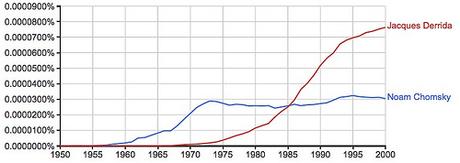
Finally, let's recontextualize Frye and situate him among the New Critics:
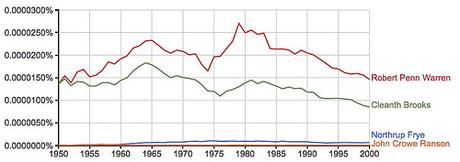
John Crow Ransom is way down there at the bottom, even below Frye. Both Brooks and Warren had been students of Ransoms and, of course, they had their names on two of the best-known undergraduate textbooks for literature, Understanding Poetry and Understanding Fiction. Warren also won Pulitzer prizes in both fiction and poetry (the only one to do so) and had a novel, All the King's Men, made into a major motion picture.
Finally:
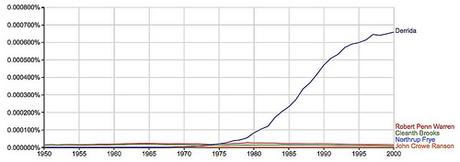
Conclusions?

